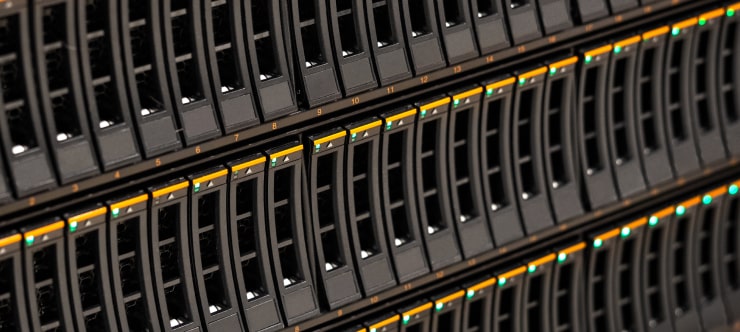Public Cloud Storage: The Pros and Cons

I think there's an issue with my storage device, but I'm not sure
Start a free evaluation
Public Cloud StorageInformation remains invaluable since the dawn of time. As time progresses and new internet technologies are created, the need to access information has never been as paramount as it is right now. That is why advances in storage solutions are such a huge thing. Even though our hard drives and storage media can handle a tremendous amount of data, people are opting for a way to access this information on the go. This is the reason why public cloud storage was created.In the simplest terms, cloud storage is storing data online to be accessed from any device, in any location, given there is an internet connection. Cloud storage is subdivided into several groups. These are:• Personal/mobile cloud storage• The publicly available cloud storage• The privately available cloud storage• The hybrid cloud storageToday, our primary focus is on the public clouds. These are basically cloud storage solutions where data is stored on a remote server and is paid for under a subscription-based model. This cloud storage is for the whole public, where every individual is given a specific storage capacity which they may have to pay for upkeep. There are both free and premium public cloud storage services. So, if you are looking to subscribe to one, here are the pros and cons associated with it.Pros of public cloud storage

Saves on costsOne of the most significant advantages of public cloud storage is the low costs associated with it. This is in contrast to private cloud storage which has to be purchased, installed and maintained all from the user’s pocket. The only cost associated with public cloud storage is the subscription fees, which are minimal.

More scalableA person’s or organization’s storage needs vary from time to time. When the data being stored increases, the individual must also comply and expand the cloud storage. Public cloud storage has an advantage in this corner, since all you have to do is communicate with your hosting company and ask for more storage space albeit for a few more dollars. Other forms of cloud storage might force you to buy additional equipment when scaling up.

More reliableSince the cloud storage company is in business, we can expect that they have a vast network of servers and backups in case there is a failure or corruption of data. Whenever a data center fails, the load is taken over by the remaining centers, making it virtually impossible to fail.Cons of public cloud storageData securityThe most prominent concern when it comes to public cloud storage is the security of the data stored in the cloud. Since most of the companies have these data centers in various countries, enforcing a particular set of security and compliance rules becomes problematic.

There have always been concerns that due to the multi-tenancy support, there are vulnerabilities that can be exploited to reach other people’s data. Since developers are also utilizing popular cloud storages in their applications, the data access protocols can be used to provoke data loss. This means essential data can be wiped out in a matter of seconds.Another major aspect is downtime. The most extensive DDoS attack happened in 2013 with whopping speeds of 309Gbps. This is enough to deny users the access to the cloud storage until the attack is handled at which the damage could be irreversible.
Related services
These are the most commonly requested data recovery services. At our headquarters' cleanroom lab, our certified engineers conduct a thorough review of any type of physical storage device, determining if there is logical or physical damage and carefully restoring all of the lost files.ces.

External Drive Data Recovery
We recover data from both external SSD and HDD drives. Rely on certified experts to restore your important files from damaged or corrupted external drives.

Hard Drive Data Recovery
Recover data from all brands of HDD, PC hard drives, and hybrid disks. Our specialists ensure fast and secure recovery for any data loss scenario.

NAS Data Recovery
Recover data from NAS devices, including RAID configurations. Our team handles all types of NAS systems and ensures data recovery with minimal downtime.

RAID Data Recovery
Our RAID data recovery services cover RAID 0, 1, 5, 10, and other configurations. We offer expert solutions for failed, degraded, or corrupted RAID arrays.

SAN Data Recovery
Our team specializes in handling SAN devices from leading manufacturers like Dell EMC, HP, and IBM, ensuring efficient recovery with minimal disruption to your operations.

SD Card Data Recovery
Our recovery experts specialize in restoring data from SD and memory cards. We guarantee quick recovery with a no-data, no-charge policy.

SSD Data Recovery
Our data recovery experts handle all SSD data loss scenarios with advanced tools, ensuring maximum recovery with high-security protocols.

USB Flash Drive Data Recovery
Recover lost data from USB flash drives, regardless of the damage or brand. We offer free in-lab evaluations to assess data recovery needs.
If you’re unsure about which data recovery service to choose, let our team assist you in selecting the appropriate solutions. We understand the anxiety that comes with a sudden drive failure, and we are more prompt in our actions compared to other recovery service providers.



